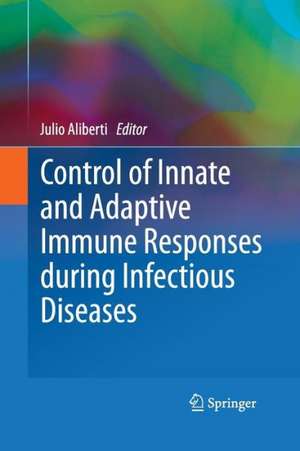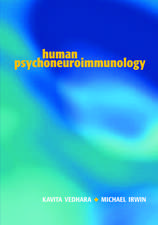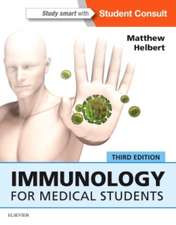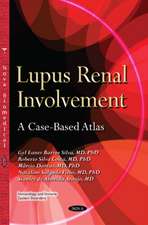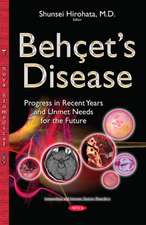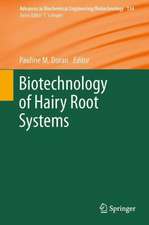Control of Innate and Adaptive Immune Responses during Infectious Diseases
Editat de Julio Alibertien Limba Engleză Paperback – 6 dec 2014
| Toate formatele și edițiile | Preț | Express |
|---|---|---|
| Paperback (1) | 709.87 lei 6-8 săpt. | |
| Springer – 6 dec 2014 | 709.87 lei 6-8 săpt. | |
| Hardback (1) | 715.35 lei 6-8 săpt. | |
| Springer – 21 sep 2011 | 715.35 lei 6-8 săpt. |
Preț: 709.87 lei
Preț vechi: 747.23 lei
-5% Nou
Puncte Express: 1065
Preț estimativ în valută:
135.83€ • 141.82$ • 112.42£
135.83€ • 141.82$ • 112.42£
Carte tipărită la comandă
Livrare economică 05-19 aprilie
Preluare comenzi: 021 569.72.76
Specificații
ISBN-13: 9781493902279
ISBN-10: 149390227X
Pagini: 188
Ilustrații: X, 178 p.
Dimensiuni: 155 x 235 x 10 mm
Greutate: 0.27 kg
Ediția:2012
Editura: Springer
Colecția Springer
Locul publicării:New York, NY, United States
ISBN-10: 149390227X
Pagini: 188
Ilustrații: X, 178 p.
Dimensiuni: 155 x 235 x 10 mm
Greutate: 0.27 kg
Ediția:2012
Editura: Springer
Colecția Springer
Locul publicării:New York, NY, United States
Public țintă
Professional/practitionerCuprins
Resolution of inflammation during Toxoplasma gondii infection.- Mechanisms of host protection and pathogen evasion of immune response during tuberculosis.- NKT cell activation during (microbial) infection.- Regulation of innate immunity during Trypanosoma cruzi infection.- B cell-mediated regulation of immunity during Leishmania infection.- Control of the Host Response to Histoplasma capsulatum.- Modulation of T-cell mediated immunity by cytomegalovirus.- T cell responses during Human Immunodeficiency Virus (HIV)-1 infection
Textul de pe ultima copertă
The interface between host and pathogen cells involves a complex series of molecular mechanisms. On one side host cells recognize pathogen structures and initiate immune responses. On the other side, pathogens continually evolve immune escape strategies aiming at establishing chronic disease and transmission to a new host. The balance between those two forces can determine the fate of infectious diseases. Either uncontrolled pathogen replication or tissue damage due to unleashed pro-inflammatory responses can be detrimental to the host.
Here we explore immune regulatory mechanisms that take place during some of the most relevant infectious diseases worldwide. We provide a wide spectrum view of the current understanding of how the immune system modulates ongoing responses to prevent host pathology, as well as some immune evasion strategies used by some of those microbes.
Here we explore immune regulatory mechanisms that take place during some of the most relevant infectious diseases worldwide. We provide a wide spectrum view of the current understanding of how the immune system modulates ongoing responses to prevent host pathology, as well as some immune evasion strategies used by some of those microbes.
Caracteristici
Explores immune regulatory mechanisms that take place during some of the most relevant infectious diseases worldwide Provides a wide spectrum understanding of the immune system modulates ongoing responses to prevent host pathology Full-color figures illustrate complex ideas
